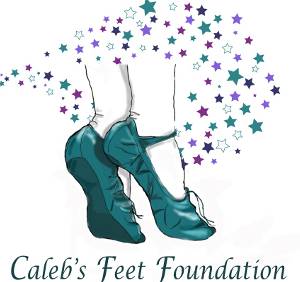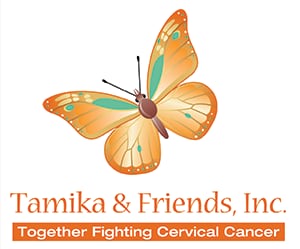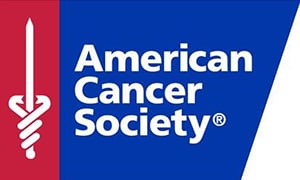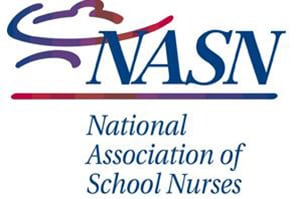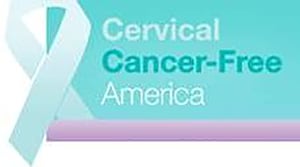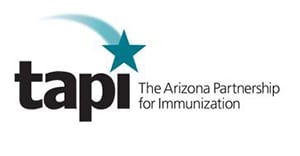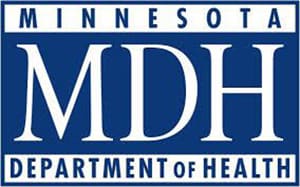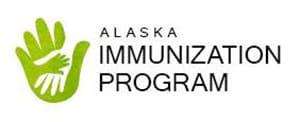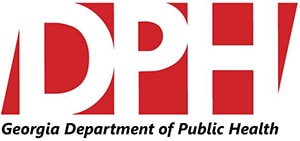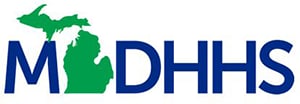Partner Spotlight
GIAHC, American Medical Women’s Association, and Indiana University (IU) partner each year for the HPV Prevention Week, “Us vs HPV.” Their mission is to create a collaborative community dedicated to educating clinicians and the public about the HPV virus, its disease consequences, prevention, and management. Us vs HPV is a one-week series of webinars, social media campaigns, local events and more to promote awareness about HPV and HPV-related diseases.
In 2013, Linda Halsey, an executive director at a Brooklyn dance company, founded Caleb’s Feet Foundation (CFF) in honor of her daughter Cheryl Janeé Parris who battled cervical cancer. With the passing of her daughter, Halsey felt that there was a need to share the information about cervical cancer and HPV infection with her community. One of their goals is to expand outreach to the Hispanic/Latino community.
Tamika & Friends, Inc. partnered with the CDC in 2013 in an effort to share survivor stories to better spread awareness about HPV and cervical cancer. Founded in 2005 by cervical cancer survivor and advocate Tamika Felder, their network of survivors and their friends spread the essential message that through education, prevention and treatment, cervical cancer can be eliminated.
The American Cancer Society’s Cancer Control Department supports the delivery of health care provider resources and programs as well as professional development and training opportunities worldwide. The Society also brings extensive experience in evaluating programs and a wealth of expertise in monitoring and interpreting population-based and study outcomes related to cancer control and prevention. It is this unique set of capabilities that allows the Society to work across the fields of cancer prevention and immunization to support HPV cancer prevention activities, especially with clinicians.
“As school nurses, we need to encourage parents to talk to their child’s healthcare provider to make sure their children are up-to-date with all their vaccinations and pave the way for a healthy school year,” said Nichole Bobo, NASN’s director of nursing education.
In addition to providing a strong recommendation, school nurses can incorporate other evidence-based strategies to increase HPV vaccine uptake, such as providing reminders to students and families about when to begin the vaccine series; the importance of completing the series according to the recommended schedule; and accessing state immunization information systems to identify students who need to be vaccinated, said Bobo.
Although preventing cervical cancer has become a global effort for CCFA, the core of the organization is still rooted in the power of local engagement. “Solutions to cervical cancer prevention are local,” said Jennifer Smith, director of CCFA. “It’s all about local people doing local policy and implementation activities to prevent a highly preventable cancer that unnecessarily kills over 250,000 women every year globally.”
Local coalition building and partnerships are a big part of CCFA’s local initiatives. CCFA maximizes the value of these partnerships and coalitions through linking groups together that wouldn’t normally interact. For instance, on the state-level, CCFA states have linked cancer groups with pediatricians to educate pediatricians on the importance of preventing HPV cancers in the preteen years with HPV vaccine.
Known also as F4WC, this organization dedicated to ensuring education and public awareness of gynecologic cancer prevention, early detection, and optimal treatment. Founded by the Society of Gynecologic Oncology (SGO), F4WC focuses on public outreach as a complementary approach to SGO’s outreach to clinicians and physicians. CDC research studies with parents demonstrated that strong HPV vaccine recommendations from oncologists, as well as messages like, “HPV vaccine is cancer prevention” are motivators to vaccinate. Our partnership with F4WC is a great opportunity to reinforce this link between HPV vaccine and cancer prevention, while spreading awareness about adolescent vaccinations.
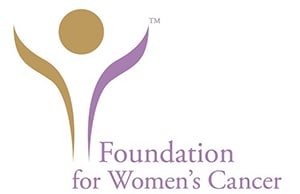
TAPI’s “Protect Me with 3” campaign directed at parents of 11-12 year olds gives parents simple, actionable steps to protect their children from serious diseases including HPV-related cancers. The campaign frames the HPV vaccine as a routine vaccine that all preteens need for protection and communicates to parents that getting their children immunized is as simple as one, two, three. Preteens need one dose of the Tdap vaccine, two doses of the meningococcal vaccine, and three doses of the HPV vaccine.
Even before becoming a Prevention and Public Health Fund (PPHF) awardee, the Minnesota Department of Health (MDH) used several low-cost strategies to improve HPV vaccination rates.
Using ordering data from the Vaccines for Children (VFC) program, MDH identified practices with low ordering rates and sent letters to these practices with strategies for increasing HPV vaccine uptake. The MDH Comprehensive Cancer Control Program matched funds to provide a stipend to clinics participating in MDH’s adolescent reminder/recall project. Working with the Minnesota State High School League allowed them to change exam forms for physicals to include HPV and meningococcal vaccines.
In March 2008, the Alaska Native Tribal Health Consortium identified that only 26 percent of adolescent Alaska Native girls had received one or more doses of HPV vaccine. In a span of only 18 months, this number climbed to 71 percent. Alaska’s current HPV vaccination coverage rate for adolescent Alaska Native girls with one or more doses of HPV vaccine is 84 percent, well above the national coverage rate of 57 percent.
How was this increase achieved? Through a combination of best practices involving provider education and outreach, parent education, reminder/recall, and working with key partners and stakeholders.
The “Protect Me With 3+” campaign, a collaboration between the New Jersey Department of Health, Vaccine Preventable Disease Program (VPDP) and the Partnership for Maternal and Child Health of Northern New Jersey (Partnership), aims to raise awareness about the importance of adolescent vaccines among preteens, teens, and parents to increase vaccination rates for influenza, Tdap, meningococcal, and HPV. This campaign began as a video contest in 2012 to empower adolescents and has expanded to include a poster contest, an educational website, and a social media campaign. The Protect Me With 3+ campaign provides information on all routinely recommended adolescent vaccines and has several teen-friendly videos promoting HPV vaccination.
Partnership has also tackled increasing HPV vaccination rates directly with providers by encouraging them to present parents and their adolescent patients with a bundled recommendation for HPV vaccine—one that doesn’t single it out or present the vaccine as optional.
Georgia is one of a number of states that has done a significant amount of work on the HPV vaccination front. Through a grant from the Prevention and Public Health Fund (PPHF), the Georgia Department of Health (GDPH) has led a number of activities to combat low HPV vaccination rates such as engaging key stakeholders, educating clinicians, setting up reminder-recall systems, and raising consumer awareness about the importance of HPV vaccination.
Chief among these activities was establishing a joint initiative of crucial stakeholders, which includes the state immunization coalitions, cancer control programs, county and local health districts, school nurses association, American Academy of Pediatrics (AAP) chapter, and department of education.
In 2013, Michigan applied to CDC for a Prevention and Public Health Fund (PPHF) award and with the additional resources from the award, they were able to tackle a number of key initiatives to impact HPV vaccination rates including using the Michigan Care Improvement Registry (MCIR) for reminder/recall systems, education and training for providers, stakeholder engagement and planning, and increasing awareness to consumer audiences.
The comprehensive communication campaign focused both on health care providers and general public audiences. With the need for a provider recommendation for HPV vaccinations, MDHHS will include an HPV vaccination presentation at all eight of their fall regional conferences. The presentation titled, “Recommending HPV Vaccination: What are the magic words?” will reach about 1,800 health care workers and feature one of their physician champions.
As a medical resident, Basel Khatib, MD was strongly influenced by the vital role vaccines play in protecting the public’s health. During his 21 year career as a practicing pediatrician in Dearborn, MI, Dr. Khatib has attained and maintained high childhood, pre-teen, and teen immunization rates. Dr. Khatib has been a champion for HPV vaccination both in his words and in his actions as his practice has achieved an HPV vaccine series completion rate of 99 percent.
Dr. Alix Casler is the Medical Director and Chief of Pediatrics at Orlando Health Physician Associates in Orlando, Florida. Her passion for high quality healthcare is evident as she strives to improve the systems in her office. In 2015, Dr. Casler led a highly successful Quality Improvement project in her practice where a number of interventions were applied to get clinicians and their staff on-board around improving their HPV vaccination rates. Educating clinicians and their office staff while providing incentives and improving office processes were critical components. Her practice experienced a 20% increase of HPV vaccination rates for boys and girls, with plans to address sustainability and continue improvements.
The content featured on this website is provided for informational and educational purposes only. The information provided reflects the opinions of the speakers only, and does not necessarily represent the position of the Centers for Disease Control and Prevention or the Department of Health and Human Services. No endorsement of the speakers by the U.S. Government should be inferred or implied.
